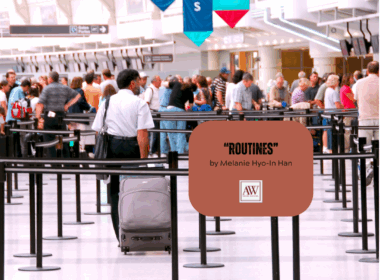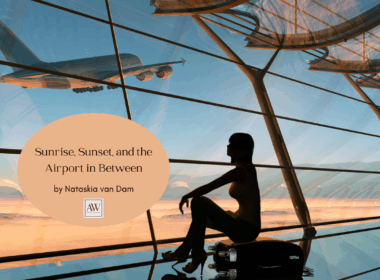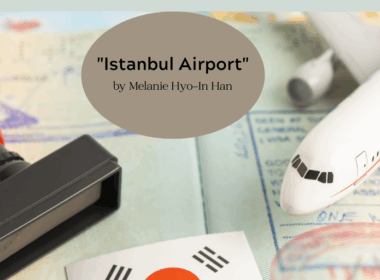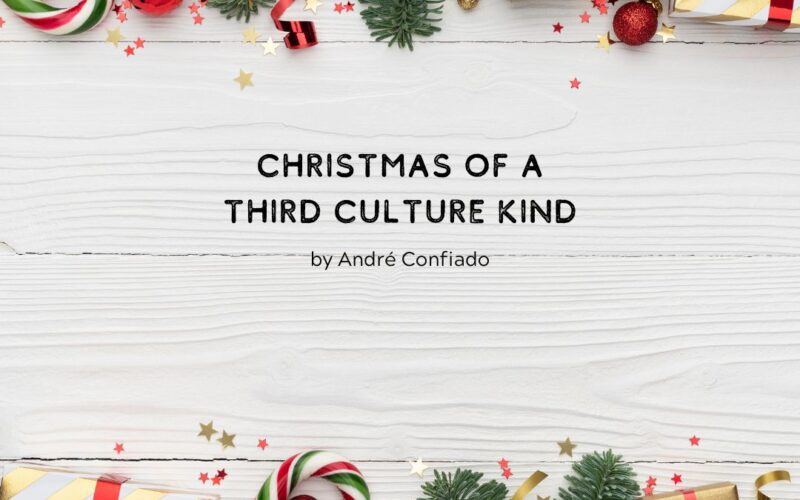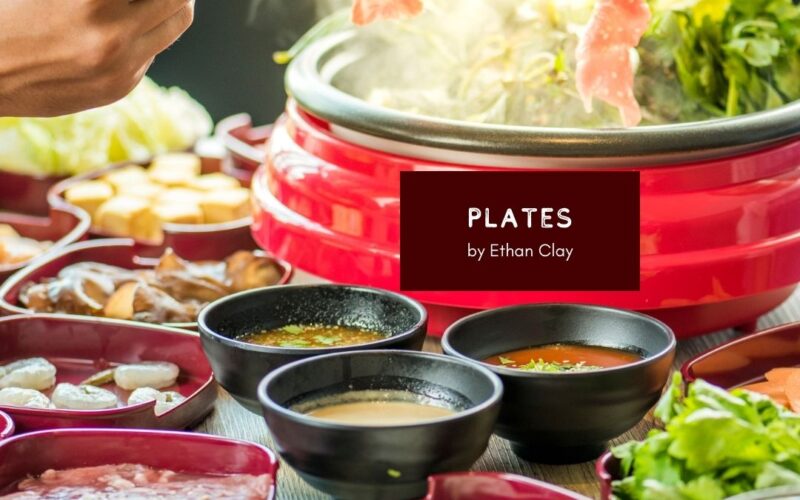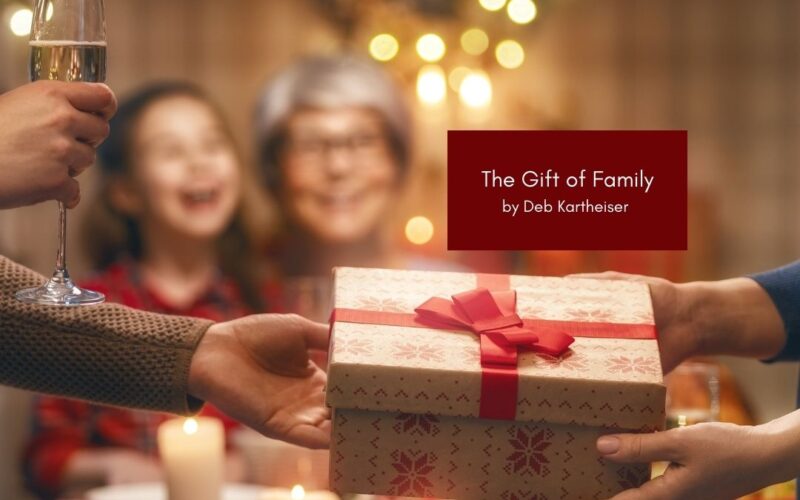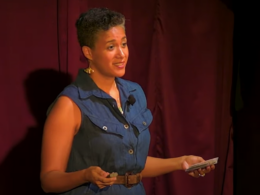Many TCKs can relate to André Confiado’s reflections from his past Christmas seasons. Maybe it is how his family celebrated and added to the traditions of the various cultures. Or perhaps it is the fact that it was a time of year when things seemed stable. Either way, please enjoy this essay from the archives. It was first published in the December 2014 issue of Among Worlds.

The life of a TCK is peppered with instances of departures, boxes, moving vans, shipping containers, airplanes and much more. It has a distinct atmosphere of movement and instability. Yet, for me at least, one thing is always stable: the holiday season. This time of year is special for many. It is marked by celebrations and scrumptious feasts and, more important, it is a time spent with family. Tradition is in all of this. Since family (both nuclear and extended) is very important in the Philippines, my passport country, being with family is what the Christmas season is all about.
As a TCK, though, being away from extended family brings a different meaning to the holiday season and a different kind of tradition. I mentioned a certain kind of stability, since the two constant “things” I had growing up were my parents. They were with me everywhere we went, and thus we celebrated a lot of things together. In a way, it made things simple…but it also made things very different, because once we began living overseas, we never again celebrated Christmas the same way.
My passport country (which has a large Christian majority) celebrates the holidays in a pretty extravagant fashion. Streets are filled with decorations. Malls are filled with Christmas goodies, and songs fill the air. Yes, even the songs that speak of wintery weather make their way to a country where the seasonal norm is 30 degrees Celsius (86° F) weather.
Upon my dad’s first posting, we were immediately assigned to India, a country that does not exactly have a Christmas season. This was a really big change and a stark contrast to how the Philippines celebrate Christmas. In India, the celebration of Christmas was almost nonexistent. This obviously put quite a dent in our first celebration overseas. Not only were the usual Filipino Christmas fares unavailable, we also did not get that “Christmas feeling” while in India. No lights, no garlands, no trees…no nothing. The absence of Christmas could easily have turned into a sad state of affairs. Nevertheless, my parents did something that made Christmas what it is to me now: they started our very own tradition of celebrating Christmas as we enjoy it. I know, of course, that each family has its own tradition of celebrating Christmas, but ours took on a special meaning for me once we had left the fine comforts of “home.”
My mother started with the most simple (yet, paradoxically, also more complicated) things, namely the food. She tried her best to ensure that we got to feast on the same food we had had in our passport country. Yet, this was marked with a few difficulties. Some ingredients were hard to come by, and some were not immediately available at all, such as beef (which is not regularly sold at Indian markets because of religious restrictions). Consequently, my mother had to improvise and change recipes as she saw fit. As our stay in India went on and we made more friends, our Christmases started to reflect more and more the evolution in our way of life (as a diplomatic family) and our host culture. Certain dishes from our host country started to make their way to our Christmas feasts. I distinctly remember having tandoori chicken (marinated in yogurt, lemon and spices) at one point in time.
When we moved to Germany after four years in India, there was once again a period of adjustment. However, this time we faced a different kind of adjustment. Our time spent in the sub- continent had changed our view of the holiday season. The move to Europe brought us back into the Christmas spirit. The Berlin streets were filled with lights, decorations and, of course, Christmas markets! I was (almost quite literally) like a kid in a candy store. I marveled at the ways we had celebrated Christmas up to this point and now marveled that in Germany, I experienced snow at Christmas for the first time. Delhi had some cold weather, but we never saw snow during our time there. Now, all the songs I had heard at Philippine shopping malls when I was a child started to make sense.

Of course, our Christmas celebration still was different from what my parents were used to, but having the “spirit” of things made it slightly easier for them to bear as well. In addition, having a more sizable community of fellow Filipinos in the country made it easier to get more into the “vibe” that felt familiar to my parents. With the move to Germany, the gastronomical fare for us during the holidays was also less constrained. I was regaled with the assortment of German Christmas specialties, including piping hot sausages at the market, Glühwein (German mulled wine) and, of course, German Lebkuchen, a kind of gingerbread! All these items made their way into our Christmas feasts, and now Christmas is not Christmas without at least mulled wine.
As you may have concluded by now, my way of celebrating Christmas has become a blend or an amalgamation of the different kinds of “Christmases” I experienced growing up. It is a combination of Filipino traditions and food and Indian gastronomical treats, flowing with German Glühwein. Because I also spent a lot of time imbedded in a French cultural setting, our Christmas meal can also include tartiflette (au gratin potatoes), raclette (cheese), fondue, figs and foie gras. So, it should come as no surprise that our Christmas dinner includes mulled wine as a first drink, followed by tartiflette and German sausages, foie gras with figs and melted cheese and ending with Apfelstrudel (apple tart) with vanilla cream as dessert.
Through it all, it seems my idea of what Christmas is can be gleaned from the food I expect to eat during the holidays. And, of course, this is true. My Christmas celebration is a reflection of how I experienced the season growing up, and it has become part of who I am. But the main thing about my Christmas of the third-culture kind is what it has come to mean to me. This season has become synonymous with who I am as a person. For me, it has come to mean a source of regularity and stability because, even though I moved from one country to another, I knew I would always celebrate Christmas with my parents. Christmas has become a source of regularity and stability because of the way I celebrate it. The different kinds of food, the different kinds of traditions, reflect who I am: a third-culture kid. In a way, this most wonderful time of the year reminds me of some of the most challenging but also most fun and fulfilling times of my life growing up. That is the joy of Christmas for me.
Merry Christmas and a Happy New Year to all of you, wherever you are in the world.
André Confiado is an ATCK who has lived in France, Germany, India and the Philippines.


